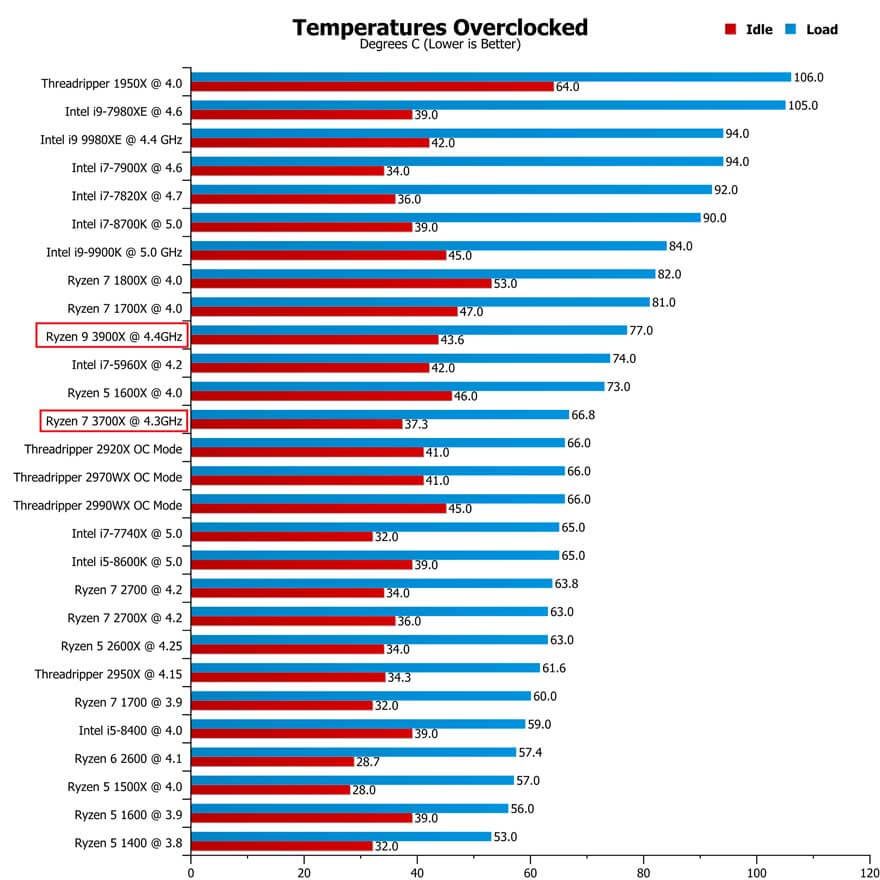AMD Ryzen 7 3700X & Ryzen 9 3900X Processor Review
Peter Donnell / 5 years ago

Settings
I would like to say that overclocking was hugely beneficial, but while it did improve performance, I’m not sure it’s worth the trouble. We did manual overclocking to 4.3 GHz @ 1.4v on the 3700X and 4.4 using 1.5v on the 3900X. That was enough to have the 3900X just pull ahead of the 9900K too. Wprime scores fell a little, and Cinebench improved too. However, this meant the temperatures went from a 63c and 69c up to 66c and 77c overall. Still pretty cool “for an AMD chip” if you will. However, it also wasted their impressive efficiency ratings. The CPUs went from 172.8w and 225.4w up to 203.8w and 261.6w. You can net very similar results using PB2 in Ryzen Master, which only boosts the clocks when you need them, then drops them again after. It’s more efficient and easy going on the hardware than locking the clock speeds at max.
There’s an elephant in the room though, can you spot it? Power consumption was lower in both stock and overclocked scenarios. Plus, temperatures were also much lower in both tests. When was the last time AMD pulled off that double whammy? 7nm FTW.
3DMark Firestrike

WPrime

Cinebench R15
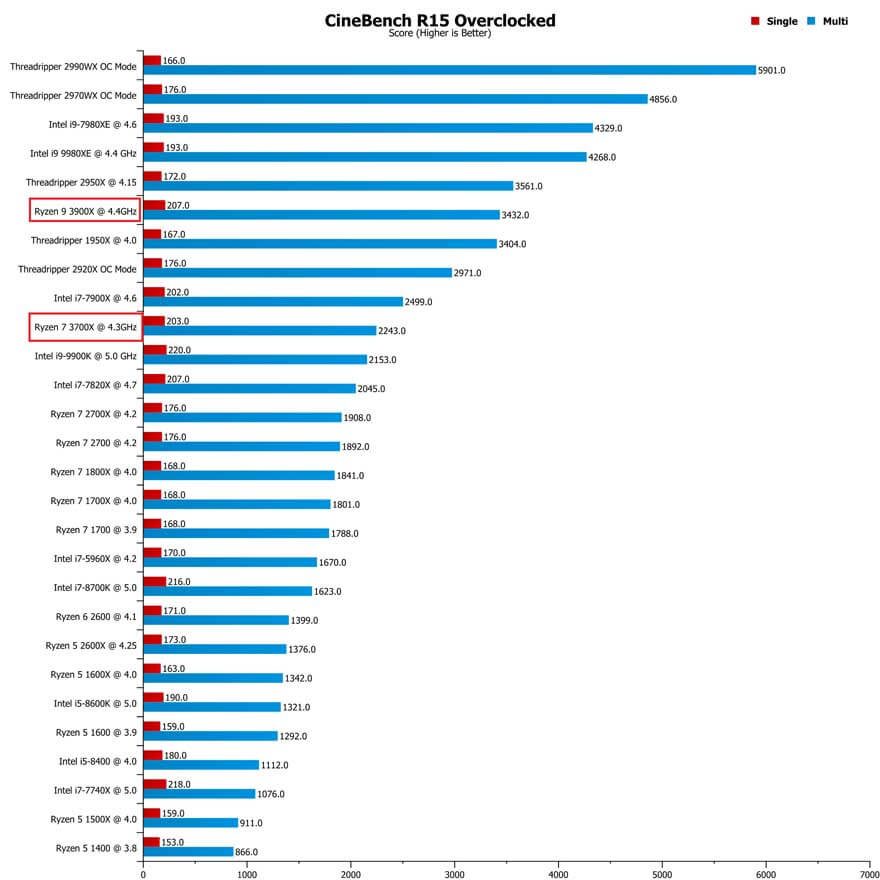
Rise of the Tomb Raider
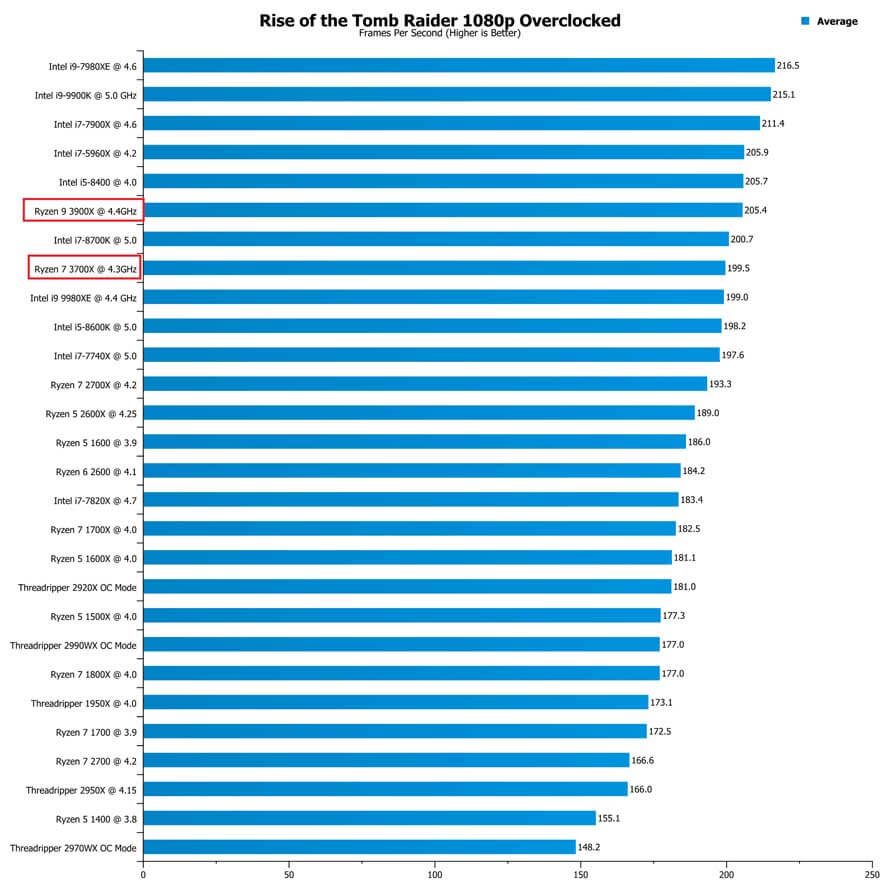
Power Consumption
Stock
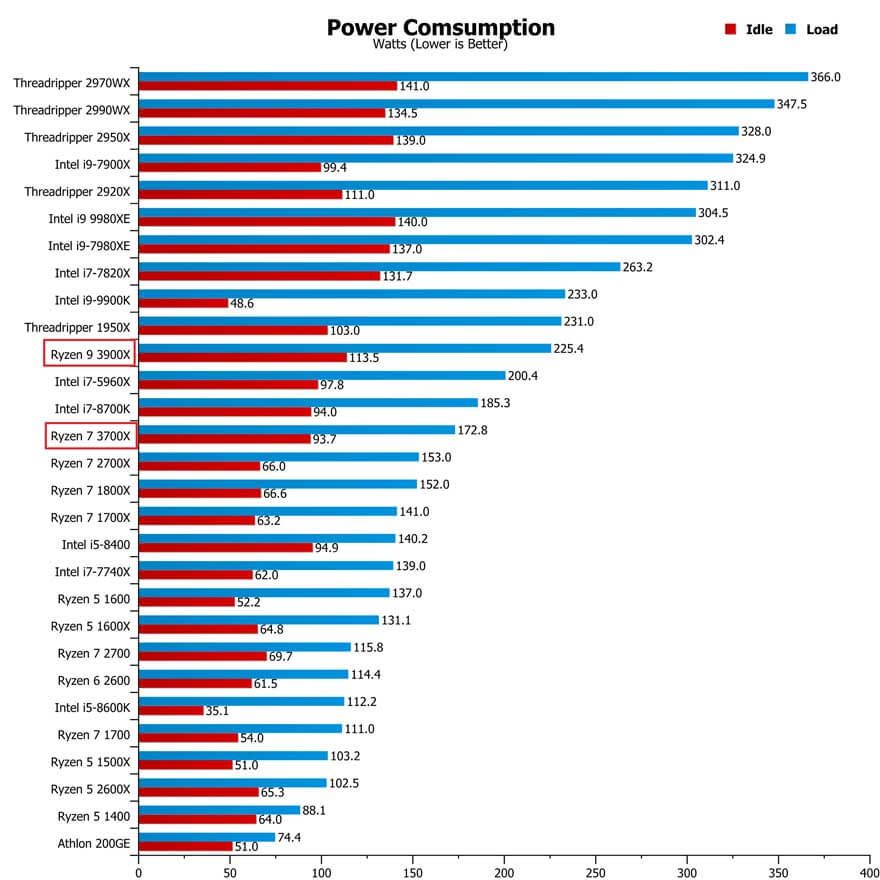
Overclocked
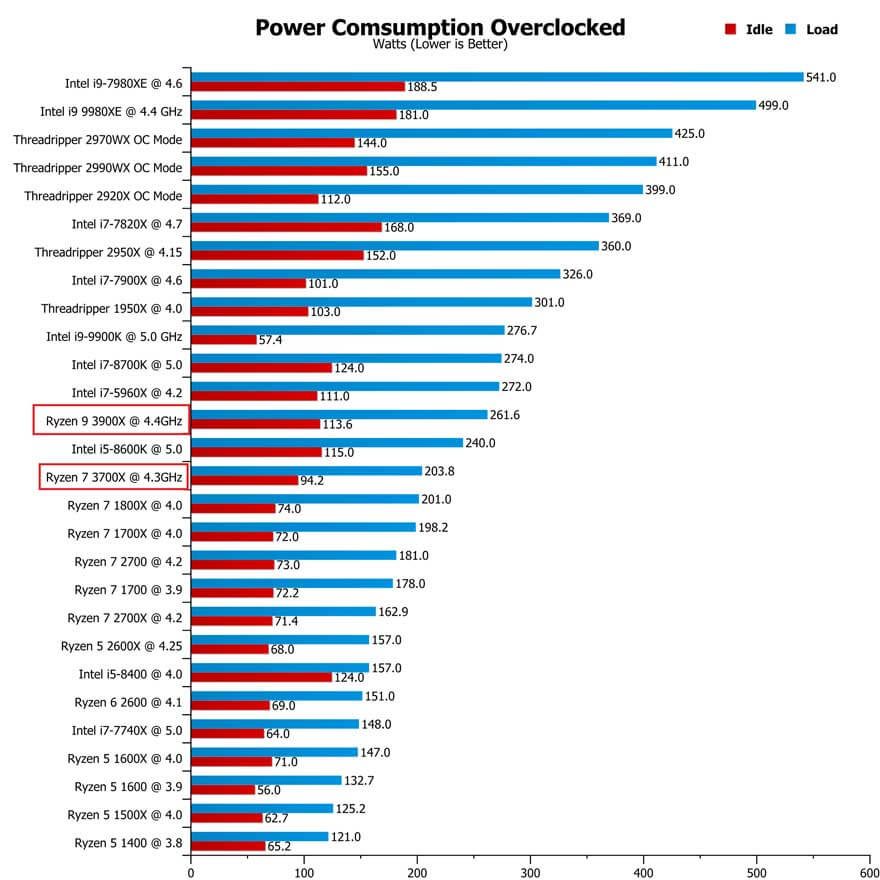
Temperatures
Stock

Overclocked
